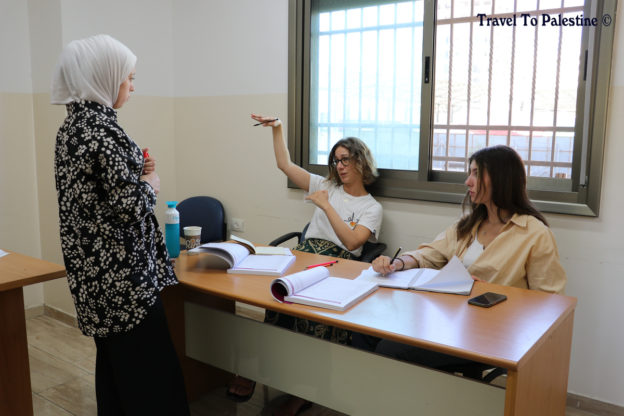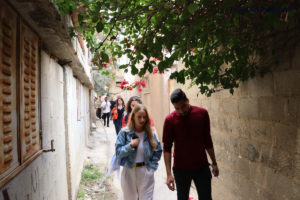Palestinian Arabic: When traveling in Palestine, learning the spoken dialect can help internationals communicate and engage more easily in Palestinian daily life. For this reason, learning a bit of Palestinian Arabic is highly recommended before your trip, though not required by any means, as many locals speak some English.
Modern Standard Arabic, (MSA),( العربية الفصحى) is the standardized version of literary Arabic, and it is used in academia, news, business, law, and media, but this is a formal language that is not generally spoken in Palestine. The Palestinian dialect (اللهجة الفلسطينية) is the everyday language of this area and it is easy to communicate through it with the Palestinian people. Below we’ve included some information about the Palestinian dialect!
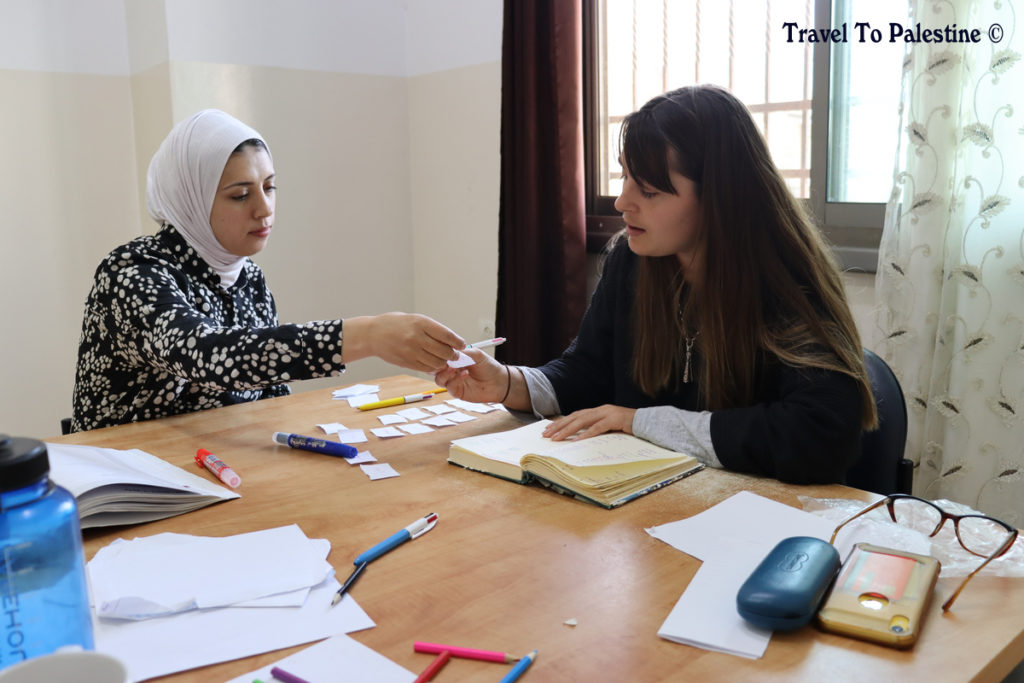
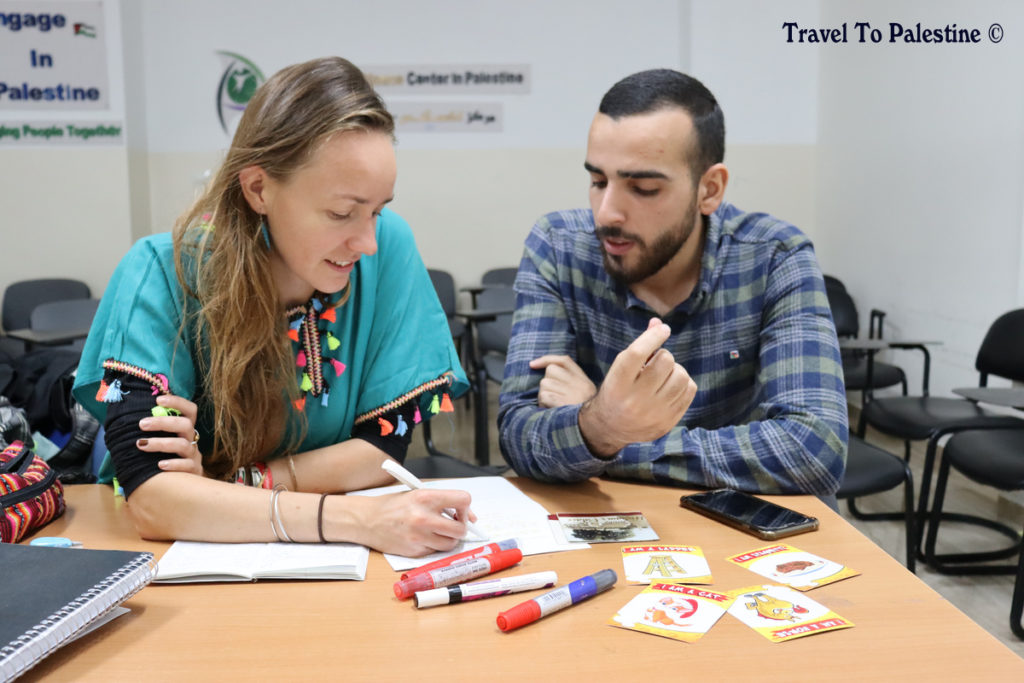
| Native speakers | 13 Million Palestinians |
| Language family | Afro-Asiatic > Semitic |
| Dialects | Fellahi; Madani |
| Writing system | Arabic alphabet |
| Dialect varieties | Intelligible varieties of Levantine Arabic |
Table of Contents
Quick Facts about Palestinian Arabic
While the Palestinian dialect is one of the closest dialects to Modern Standard Arabic, many Palestinians will find it very formal and surprising if you were to use MSA as opposed to the local dialect. With that being said, if you have studied MSA or learned some basic phrases in MSA you will find that it is relatively simple to pick up the Palestinian dialect and that your time studying will not have been in vain! Learning the Palestinian dialect is a great way to build upon your knowledge and expand your language skills.
As a bonus, Palestinian Arabic is one of the only Arabic dialects that is understood by the majority of Arabic speakers of all dialects. Thus, learning Palestinian Arabic can greatly benefit internationals when traveling to other countries in the Middle East.
Levantine and Palestinian Arabic
Palestinian Arabic is a type of Levantine Arabic that most Arab people speak in Palestine, Israel, and in Palestinian communities around the world. In general, the different varieties of Palestinian Arabic can be understood by speakers from different areas, such as what is spoken by Palestinians in the Hebron area, which is similar to Arabic spoken by descendants of Palestinian refugees living in Jordan and south-western Syria.
Enhancing Your Arabic by Living in Hebron
Palestinian Arabic speaking skills will grow fast by living in Palestine and participating in daily activities, such as taking a taxi, going to the supermarket, and visiting shops and cafes. Local Palestinian residents are always eager to engage in small talk with internationals regardless of their Arabic skills, so there will be many great opportunities to practice with locals!
Cat from London who studied Palestinian Arabic with us in Hebron stated: “During my stay here I was able to immerse myself in the local culture and learn a lot about life in Palestine, which was as important to me as the academic side. The people of Hebron are overwhelmingly generous, and friendly, making my stay here a wonderful experience.”
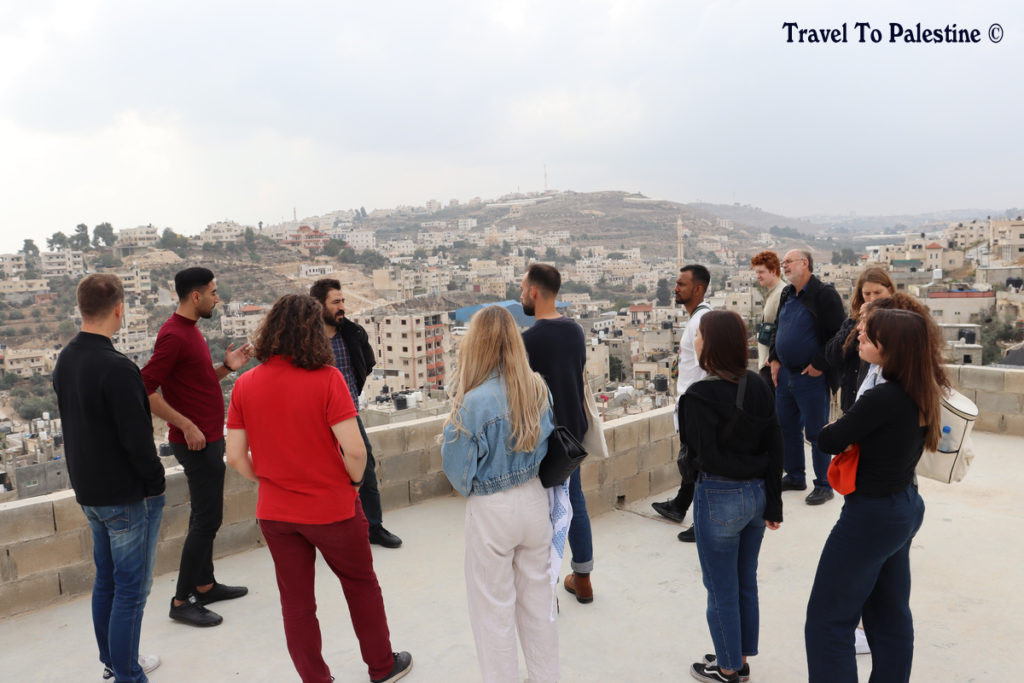
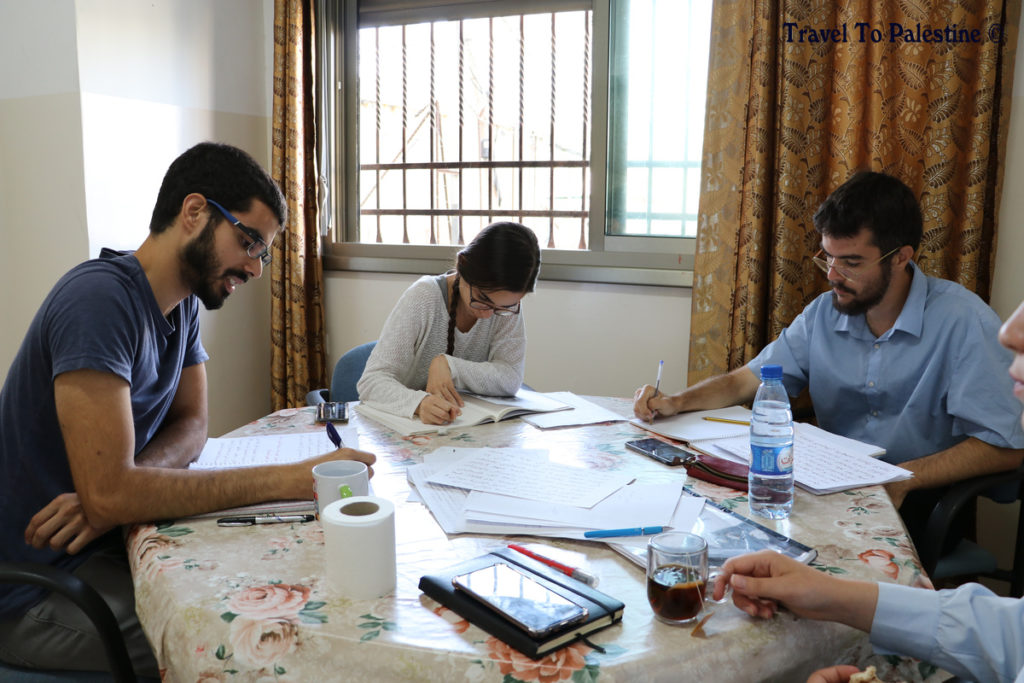
Learn Palestinian Arabic by Traveling to Palestine
It is easy for international visitors to travel from Hebron to other parts of Palestine and visit different cities and various historical, cultural, and natural sights. What’s more, Travel to Palestine organizes trips to many different historical and cultural sites, factories, governmental (and non-governmental) institutions, and refugee camps. These experiences provide an opportunity for international visitors to interact with locals and practice their Palestinian Arabic.
Some of our guests arrive in Palestine with no prior knowledge of the Arabic language but they soon pick up common words and phrases. You will be surprised by how quickly you become able to communicate with the people you meet and it is very satisfying when you discover that you can put your newly learned words into everyday use, such as when ordering a coffee, asking for directions, or simply exchanging greetings with the people you meet.
Do not be afraid, embarrassed, or shy when it comes to using your new language skills, as Palestinians generally appreciate it when internationals make the effort to learn Palestinian Arabic! They will not mind if you don’t get everything exactly correct. What’s more, if they can help you with the language, they will do so.
Exploring Palestine offers an extraordinary chance to immerse yourself in the local culture and language. Palestinian Arabic, widely spoken by Palestinians in Palestine, Israel, and the diaspora, is a key to unlocking deeper connections and more enriching experiences during your travels. While Modern Standard Arabic (MSA) serves formal purposes, it is the Palestinian dialect that will help you navigate everyday life and interactions in Palestine.
The Palestinian dialect is not only close to MSA but also widely understood across the Arabic-speaking world, making it a valuable skill for travelers. By learning and practicing this dialect, you can communicate more effectively and engage more meaningfully with the local population. This is especially true as you participate in daily activities, travel across the region, and visit various historical and cultural sites.
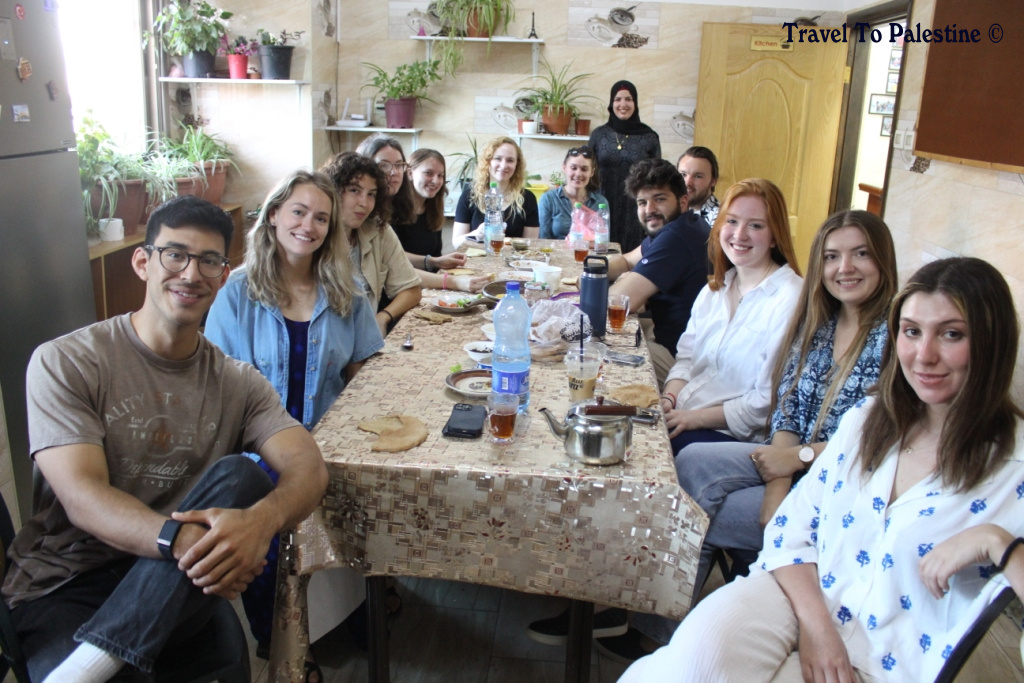
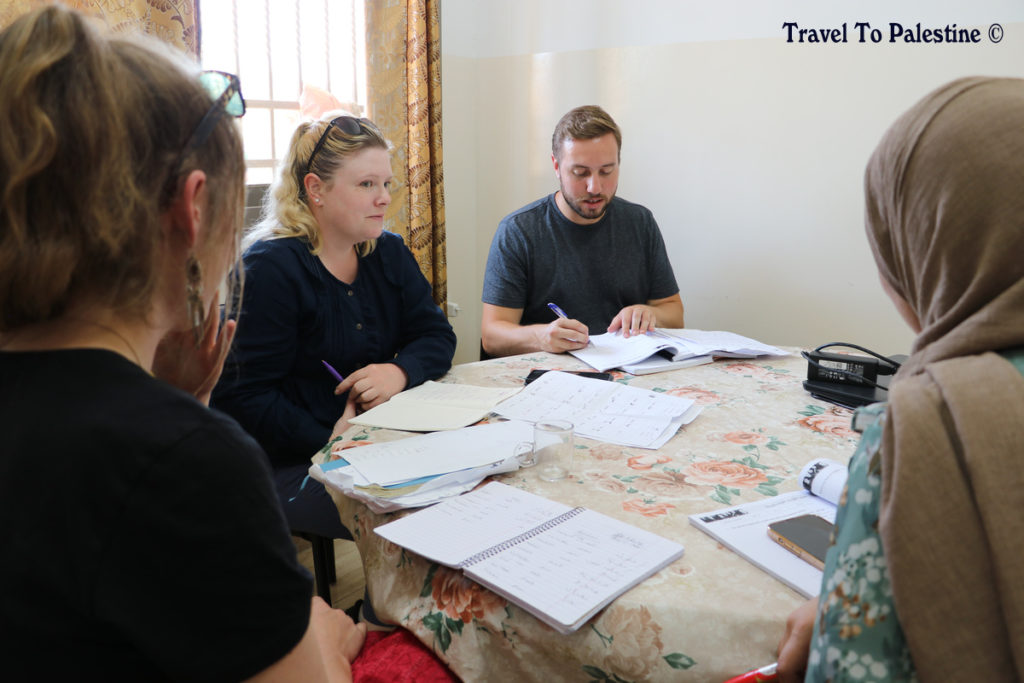
Living in Palestine, particularly in places like Hebron, accelerates your learning as you are constantly surrounded by the language and the generous hospitality of the Palestinian people. As you use Palestinian Arabic in real-life situations, from ordering coffee to asking for directions, you’ll find your language skills rapidly improving. The locals’ appreciation for your efforts to speak their dialect will make your interactions even more rewarding.
Travel to Palestine provides numerous opportunities to practice your Arabic, through organized trips to significant sites and institutions. These experiences not only enhance your language skills but also deepen your understanding of Palestinian culture and history.
In conclusion, learning Palestinian Arabic while traveling in Palestine is more than just acquiring a new language; it’s about forming lasting connections, gaining unique cultural insights, and experiencing the warmth and hospitality of the Palestinian people. Embrace this linguistic journey, and you’ll leave with unforgettable memories and a profound appreciation for the vibrant culture of Palestine.
Important and related articles – Please click to read
Find us online
Whatsapp:+972599479880
